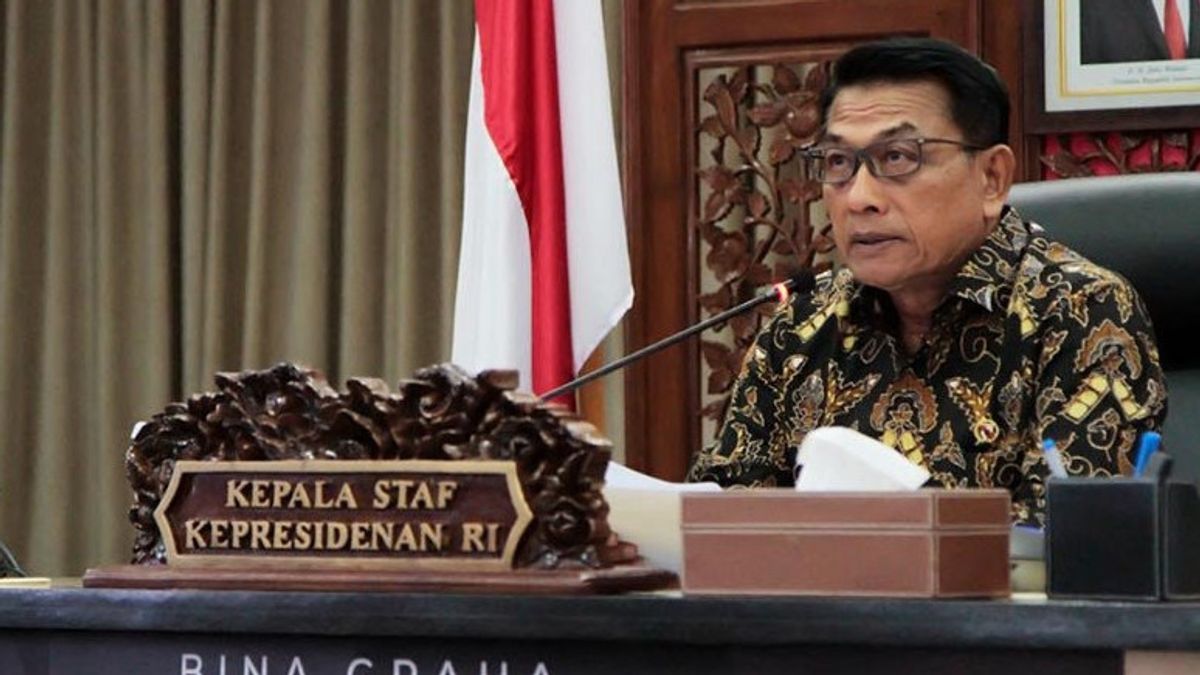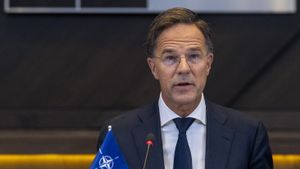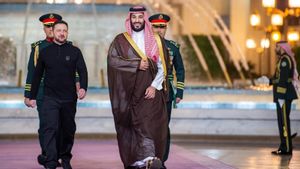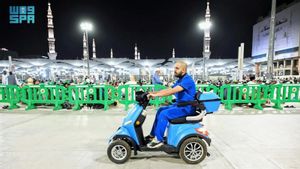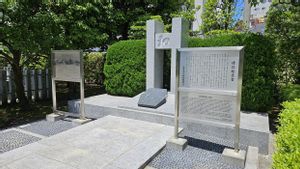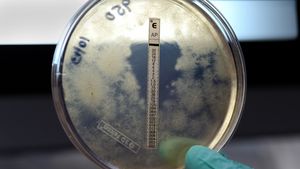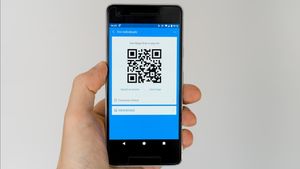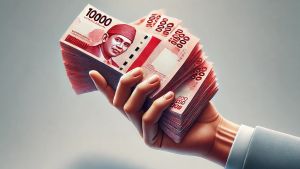JAKARTA - Presidential Chief of Staff Moeldoko said the government did not remain silent in optimizing energy sources, including through the natural gas network for households and coal gasification projects into dimethyl ether (DME).
"This is a breakthrough in accordance with the constitutional mandate, as well as showing that the government does not remain silent," explained Moeldoko when opening the International Institute for Sustainable Development Webinar with the theme The Importance of Energy Subsidy Reform for the Economy and Social Welfare from the Situation Room of the Bina Graha Building Jakarta, reported by Antara, Thursday, June 17.
Until 2020, the government recorded that it had distributed 696,011 house connections (SR) of natural gas for households. This number is also expected to increase to 4 million SR in 2024.
According to Moeldoko, the fulfillment of natural gas needs through the household gas network is efficient and safer, as well as being a very good opportunity for investment.
Meanwhile, the coal gasification project into DME in Tanjung Enim, South Sumatra is targeted to produce 1.4 million tons of DME by 2025.
This project, said Moeldoko, has been discussed several times in cabinet meetings.
These various breakthroughs, continued Moeldoko, are also in line with efforts to meet demand amid declining oil and gas production and suppressing imports.
Moreover, Indonesia has been listed as a net importer of petroleum since 2004.
"This means that so far the increase in domestic consumption is still met through imports. So, optimizing domestic energy sources is one way to substitute imports," explained Moeldoko who was accompanied by the Main Expert on Energy for Deputy I of the Presidential Staff Office (KSP) Yusuf Didi Setiarto.
On the other hand, continued Moeldoko, the government continues to strive to meet energy subsidies so that they are right on target. One of them is through the management of Integrated Social Welfare Data (DTKS).
Until now, Moeldoko revealed, the Minister of Social Affairs has worked hard to improve DTKS through cooperation with various institutions.
"The president has also given directions so that DTKS updates are carried out regularly and done seriously so that the distribution of subsidies can be right on target," explained Moeldoko.
Another point, Moeldoko ensured, was that the transformation of subsidies took place by taking into account various considerations.
Starting from sustainable development, financing capacity of the State Budget (APBN) to create social justice for all Indonesian people.
Moeldoko explained that the transformation of the subsidy was part of an extraordinary formula in the midst of the COVID-19 pandemic that changed many things.
“So we need new ways that are effective and efficient. The old ways must be revisited," he explained.
The English, Chinese, Japanese, Arabic, and French versions are automatically generated by the AI. So there may still be inaccuracies in translating, please always see Indonesian as our main language. (system supported by DigitalSiber.id)
